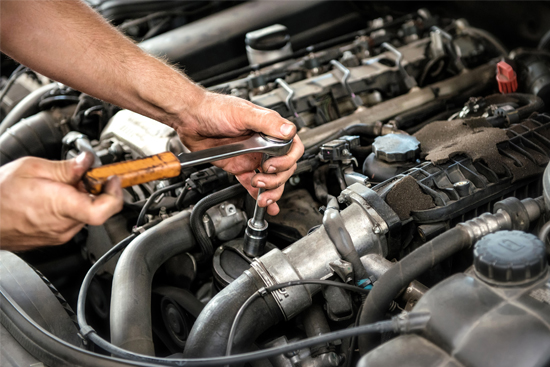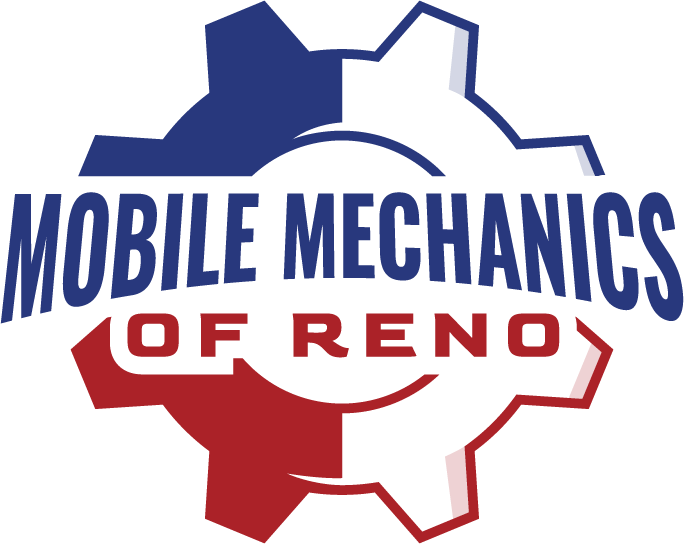Engine Repair Reno, NV
Not every driver knows everything there is to know about their vehicle, and some do not even understand how their vehicle’s engine functions. When the “Service Engine Soon” or “Check Engine” light turns on, they start to feel worried. Let’s make sure you won’t be one of them with the help of our mobile mechanics in Reno.
Your car runs because the engine turns the fuel into electricity. The principle is the same in electric cars; the only difference is the energy source. A car is nothing more than a pile of metal without its engine.

Engine issues are troublesome, and repairs or replacements can be costly. However, if you take care of your car and get it serviced regularly, you can save a lot of trouble and more costly repairs.
Typical Engine Issues
Engine Won’t Start
For most drivers, this is the most normal as well as the most nerve-wracking challenge.
There are hundreds of reasons why your car won’t start and every driver has had a share of experience when it comes to this one. Here are some of the common reasons why your engine won’t start. We can also share with you some tips about how to keep your automobile in good shape.
- Dead or discharged battery. The most popular explanation for your car not starting is a dead battery. Replace the battery, clean the contacts, or hire a professional to do the work for you.
- Corroded battery cables. The terminals should be cleaned and greased. Be sure they’re securely fastened.
- Clogged fuel filter. This is caused by debris build-up. The fuel filter could be a small component but plays a major responsibility. It should be changed by a mechanic regularly.
- Problem with the alternator. The spark plugs that ignite the fuel in your engine are driven by the alternator. When the alternator fails, there could not be enough power in the spark plugs to hold the engine going. A local mechanic can help recommend if it needs replacement or repair.
- Ignition switch issues. Ignition switch issues may also result in sudden shutdowns or electrical issues while you drive. It’s best to have a reliable local mechanic to contact just in case emergency road assistance is needed.
A vehicle can overheat for several reasons, including cooling system leakage, clogged hoses from rust and mineral deposits, heater problems, or faulty water pumps. Inspections regularly can help you prevent problems with overheating in the future.
The Check Engine/Service Engine is a device that gives you a hint to check the condition of your car. If there is a problem with emissions, ignition, fuel system, or transmission, a warning light turns on immediately. This light does not always indicate a major issue but perhaps a routine check is needed. There are a variety of failures that can allow this light to turn on and an automobile mechanic can help you spot that problem right away.
Cooling System
A cooling system works by allowing liquid coolant through passages in the engine block and heads to keep the engine cool. The coolant absorbs heat from the engine as it streams through these passages. The heated fluid then travels to the radiator in the front of the car with a rubber hose. The hot liquid is cooled by the air stream entering the engine bay from the grill in front of the vehicle as it passes through the narrow tubes in the radiator.
Too much heat in the engine will cause it to break down and impact the output of the vehicle. The cooling system, like all car parts, is prone to natural wear and tear.
If you take too long to fix issues, you risk causing serious damage to your engine or, worse, permanently damaging your vehicle.
Typical Cooling System Issues
- Water pump damage. The water pump serves as the heart of the automobile cooling system. When the water pump fails and water cannot circulate into the engine system, that eventually results in overheating.
- Broken hose. As a hose begins to leak, water is unable to drain and ultimately dries out, causing overheating.
- Faulty radiator cap. A defective radiator cap will fail to seal correctly, compromising the cooling system’s proper operation.
- Worn-out fan belts. Breaks, cracks, missing chunks, and other signs of damage can be examined by the mechanic; if the belt is wearing out, it should be replaced.
- Thermostat malfunction. The thermostat is in charge of regulating the temperature. When it fails, the heat is trapped inside the engine, causing it to overheat.
- Replace the coolant as recommended by the manufacturer.
- Look for signs of damage on the radiator cap.
- Regularly inspect for bent hoses and belts.
- Keep an eye out for coolant leaks.
Coolant leaks are the most common source of problems among the examples listed above. The majority of today’s vehicles have very little reserve cooling space. When your vehicle overheats, ask your mobile mechanic to diagnose the problem. They will give you the right guidance and perform the required repairs.
Exhaust System
An exhaust system’s function is to remove the burned air-fuel mixture from the engine. An exhaust system is also in charge of cleaning this pollution and reducing the amount of noise produced. This system has an impact on your vehicle’s performance, so it’s important to get it right.
- The check engine light is turned on – This light can be on due to a malfunctioning exhaust system. It might be a major concern if the light continues to be turned on. Call a trusted on-site mechanic and pull off to the side of the driveway.
- Reduced fuel efficiency – If you’ve been driving for a while, you’ll know what kind of mileage you can expect on a full tank. If you find that your car isn’t running as productively as it can, it may be a conflict with the exhaust system.
- Vibration – Vibrations are usually caused by a leak in the exhaust system. Vibrations are not only an indication that your automobile requires to be repaired, but they are also a safety problem. If the steering wheel is vibrating, you won’t have as much control over it.
- Strange noise when accelerating – If you hear a strange noise that sounds like metal rubbing on metal, something is likely pressing against the exhaust pipe.
- Toxic smell – It’s most definitely due to a faulty catalytic converter if the exhaust smells like rotting eggs, sulfur, or sewer gas. Harmful gases can cause monoxide poisoning.
Maintenance Tips
A decent exhaust system will ensure that the vehicle runs smoothly. It plays an important role in directing toxic gases away from your engine. Serious problems can happen if the exhaust system isn’t functioning properly. The engine’s performance will deteriorate.
Perhaps more terrifying is the possibility of carbon monoxide poisoning in the passenger compartment, which can be fatal. Prevent exhaust issues by getting the exhaust system tested twice a year by a licensed auto repair service. Even if you don’t find any issues right away, do something at least once a year.
The cost of preventive care on your vehicle would be less expensive than the cost of serious repairs if you ignore it. If you can’t stop it and have issues on the road, contact Mobile Mechanic Reno, NV for proper engine and cooling system diagnostic and repair.

